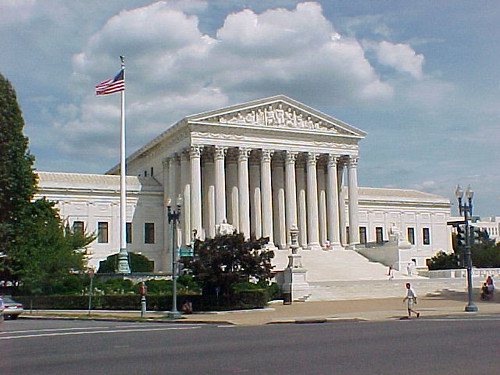WASHINGTON, D.C. — The U.S. Supreme Court appeared ready Wednesday to side with Montana law enforcement in a case that could establish national precedent for when police can enter homes without warrants during emergencies.
During approximately 75 minutes of oral arguments in Case v. Montana, justices from both sides of the bench expressed skepticism about requiring police to meet a “probable cause” standard before entering homes to provide emergency aid, according to SCOTUSblog’s Amy Howe.
The case stems from a 2021 incident in Anaconda where police entered William Case’s home during a welfare check, leading to a confrontation that left the Army veteran with a gunshot wound to the abdomen.
Constitutional Stakes
Case’s attorney Fred Rowley argued before the court that “the Supreme Court has never allowed state officials to force their way into someone’s home without a warrant or probable cause. It should not start now.”
But Montana Solicitor General Christian Corrigan countered that “the Fourth Amendment protects against unreasonable searches, not all warrantless ones.” He argued that Case’s request to impose a probable cause requirement “has no basis in text, no footing in history, and no support in this Court’s exigency precedents.”
“A rule demanding probable cause of peril would force officers to stand outside a dying man’s door, calculating legal thresholds instead of saving his life,” Corrigan told the justices.
Justice Concerns
Chief Justice John Roberts questioned applying criminal law standards to emergency situations, asking why the standard wouldn’t be “something like probable concern or reasonable concern” rather than probable cause.
Justice Samuel Alito worried the proposed standard could prevent police from responding to suicide threats. “It seems to me that if the police could not enter this house based on the facts that they knew, then I don’t know when the police are ever going to be able to enter a house to prevent somebody from committing suicide,” he said, according to Howe’s analysis.
Justice Elena Kagan expressed similar concerns, noting that probable cause precedent comes from “an investigatory criminal context” that doesn’t apply to emergency aid situations.
The Anaconda Incident
The dispute began when Case’s former girlfriend called Anaconda police in 2021, reporting that Case had threatened suicide and warned he would harm any officers who came to his house. Police were already familiar with Case, who had previously threatened suicide at his workplace and had attempted what officers believed was “suicide by cop.”
When officers arrived at Case’s home, they knocked and called through windows but received no response. Looking through a window, they saw what they believed was a suicide note and an empty gun holster.
After 40 minutes, officers entered the home. In an upstairs bedroom, one officer saw Case with what appeared to be a weapon and shot him in the abdomen. Case was later convicted by a jury of assaulting a peace officer.
Montana’s Position
Attorney General Austin Knudsen, who attended the arguments, defended the officers’ actions.
“The officers involved in this case did their due diligence and acted swiftly with reasonable suspicion that Case’s life was in danger. We do not want courts preventing officers from acting on reasonable beliefs that lives are in danger,” Knudsen said.
The Montana Attorney General’s office maintains that “probable cause” standards should apply only to criminal investigations, not emergency situations where officers are trying to protect lives.
National Implications
The case could reshape how police departments nationwide handle welfare checks and emergency entries. Montana courts ruled that when police aren’t conducting criminal investigations, they only need to show their entry was “reasonable” under the circumstances.
Several justices suggested the case should be decided under the court’s “objectively reasonable” standard from Brigham City v. Stuart, which allows warrantless home entries when police “have an objectively reasonable basis for believing that somebody needs emergency help.”
However, justices debated whether to send the case back to Montana’s Supreme Court to apply that standard or rule directly on the specific facts.
Justice Brett Kavanaugh noted the officers “thought about it carefully and decided that the risk was sufficiently high” and were “going in at great risk to themselves” to help someone rather than “pretextually looking for a crime.”
A decision is expected by the end of June or early July 2026.
